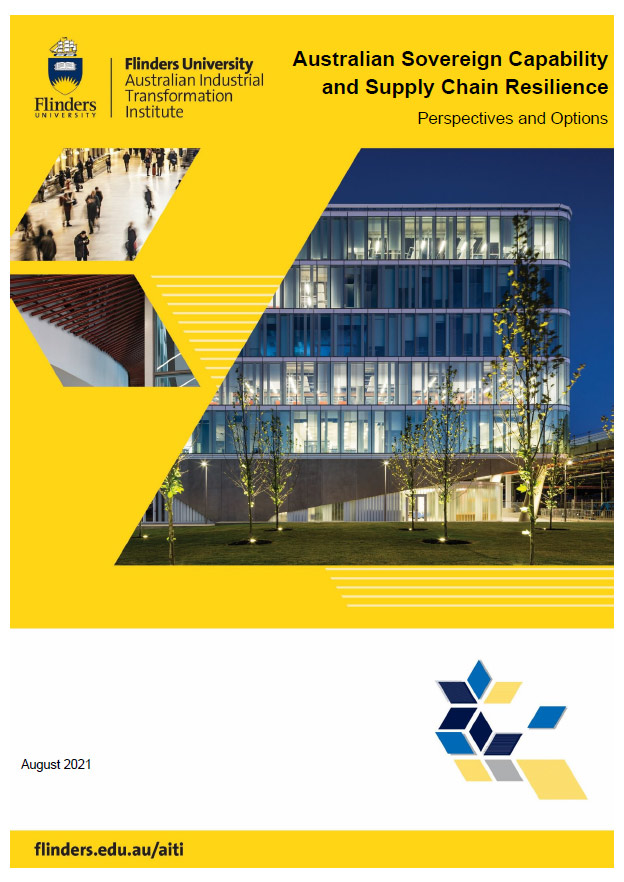Australian Sovereign Capability and Supply Chain Resilience
Perspectives and Options
A report from Flinders University – Australian Industrial Transformation Institute
Background
The retreat from industrial policy in Australia over past decades has promoted a shift in Australia’s industrial structure from domestic value-adding and manufacturing towards the bulk export of raw minerals and unprocessed agricultural products. Some have argued that endeavours to secure a minimum level of industrial capability would be anti-trade, anti-competitive, and protectionist. Such an approach has resulted in Australia now having the lowest level of manufacturing self-sufficiency in the OECD. However, arguments to maintain a level of self-sufficiency have increased in prominence as global supply chains were disrupted by the COVID-19 pandemic. The increasingly widespread concern that Australia’s industrial base was not able to supply essential products to support the health and well-being of Australians during the pandemic has forced Australian policymakers to pay greater attention to sovereign capability in industries beyond defence. While the Australian Government’s Modern Manufacturing Initiative (MMI) is welcome it is not a substitute for a national sovereign manufacturing strategy.



